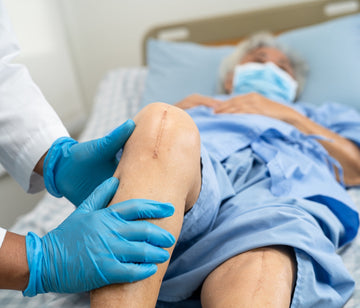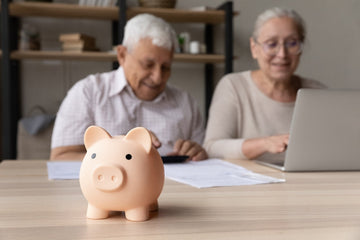
It has been aptly said that old age is akin to childhood. The Elderly can be as demanding as children in terms of care, health issues, eating, and immunity issues. Caring for the elderly especially the bedridden elderly can be challenging for the caregiver. One of the most important aspects the caregiver must pay attention to is maintaining good hygiene in the bedridden elderly.
7 Tips to Maintain Hygiene in the Elderly & Bedridden Patients.
- BATHE REGULARLY
If the elderly patients are unable to take a bath by themselves, the caregiver would have to bathe them, and regularly.
To get ready to give a bath, a caregiver must keep the following items ready -
- Bath towels, face clothes, and hand cloths
- Soft sponge
- A bucket of warm water
- Gentle non-irritating soap
- A wash basin
- Cotton buds or a nail brush
- Moisturizer
- Body powder
How do bathe the elderly or bedridden with gentle care?
- Place bath towels underneath the patient to keep the bed dry.
- Use a moist hand towel to gently wash the face and the eyes.
- Avoid using soap on their face as it could irritate their eyes.
- Roll down the sheet or blanket to expose the upper body. Expose only that part of the body, which you are cleaning. Keep the rest of the body covered for warmth & modesty.
- Use another clean, moist towel or sponge to clean the body. Use a gentle cleansing soap.
- Clean arms and legs
- Clean the skin under fingernails with a cotton bud or nail brush.
- Help the patient or turn as needed to clean the back, genitals, and buttock areas with a towel or sponge.
- Dip the person's feet in a wash basin or tub and clean the feet with a towel or sponge.
- Dry the body thoroughly with a clean fresh towel.
- Use a gentle fragrance-free moisturizer and body powder to keep skin hydrated & dry.
- Dress him or her in clean fresh clothes.

- HAIR CARE
- Use a mild gentle shampoo for hair.
- Wash hair at least once a week or more often if the hair becomes greasy and sticky.
- Place towels under their head and shoulders
- If the patient has a lot of hair, divide the hair into sections. Use a spray bottle to wet the hair. Use a small amount of shampoo. Rub it in from the scalp towards the ends of the hair. Rinse the hair with a separate spray of water.
- After the hair is clean, wrap the head in a dry towel. Gently dry the hair with a towel or a hair dryer.
- TRIM NAILS
- Clean nails regularly with a nail brush.
- Use a pair of nail clippers to keep the nails trimmed, and file the nails smooth and rounded.
- CHANGE BEDDING
Change bedding every week or earlier as required. Use fresh soft bed sheets made of smooth cotton to avoid friction with the skin.
- PROTECT THE SKIN FROM FRICTION
Apply Soreze bedsore cream to protect the skin against friction, moisture, and irritation. This will prevent the development of bedsores.

- BRUSH TEETH AFTER MEALS
To keep teeth and gums clean and healthy, help the patient to clean their mouth after every meal.
- CLEAN THE ROOM
Keep the room clean. Avoid dust as it can lead to sneezing, allergic reactions, and breathing difficulties. Remove clutter from the room. Allow fresh air and sunlight into the room.



